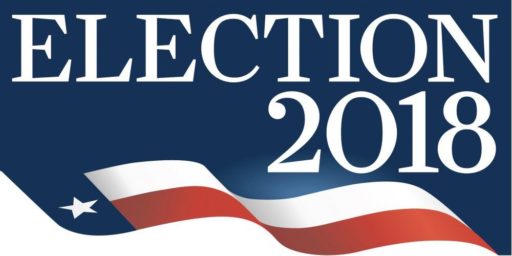Sunday NYT: Conservative Blogs Rock!
Editor and Publisher scoops the New York Times Sunday magazine on its own story about how conservative bloggers are more influential than their liberal counterparts.
‘NY Times’ Sunday Preview: Conservative Blogs Rock!
In an argument sure to be challenged in certain sectors of the blogosphere, a story in The New York Times magazine coming up this Sunday declares that conservative blogs continue to best liberal blogs in political and electoral influence. The title of the piece by Michael Crowley in the magazine’s 5th Annual Year in Ideas cover package says it all: “Conservative Blogs Are More Effective.â€
Crowley, a New Republic writer, claims that with the 2006 elections approaching, Democrats are now “trying to use blogs more strategically.†But he concludes by embracing the view of Matt Stoller, an activist who ran a blog for Sen. Jon Corzine during his 2005 race for governor of New Jersey, who believes that next year conservative bloggers “will certain have an upper hand.†Crowley adds: “Again.â€
[…]
In fact, Crowley admits that his argument for conservative blog supremacy may seem “counterintuitive,†noting the Howard Dean phenomenon in early 2004 and heavy Web traffic numbers for liberal blogs such as DailyKos. (He does not mention that studies of online traffic show that, overall, there are more highly-popular liberal blogs than conservative ones.) But he explains that “Democrats say there’s a key difference between liberals and conservatives online. Liberals use the Web to air ideas and vent grievances with one another, often ripping into Democratic leaders….Conservatives, by contrast, skillfully use the Web to provide maximum benefit for their issues and candidates.â€
This may be a case of each side thinking the other more effective and feeling the need to catch up. Certainly, the Right has nothing comparable to the DailyKos network. While RedState has put out interesting content and was unabashedly built as a conservative counterweight to DK, it has not achieved anywhere near that site’s momentum.
Both trends referenced in the story–the Right’s better message focus and the Left’s higher popularity–are likely flip sides of the same coin. Given that we have a Republican president and Congress–and that “Right” and “Left” are largely defined at the moment in terms of support for the president and/or the war in Iraq–it stands to reason that blogs on the Right are more focused on a message while those on the Left are all over the map. While there’s plenty of internecine debate and infighting on both sides, the Left is frustrated to be on the outside and angry about various policies. The Right is more likely to support the status quo and to unite in defense of the president’s agenda against some of the more over-the-top attacks from the other side.
Were there Democratic control of the federal government, I would expect to see these roles more or less reversed.
Update: McQ questions several of the premises of the piece. First, he notes several examples of the Right Blogosphere eating their young:
Like Harriet Miers? Spending? Medicare increases? Pork? The President’s tax commission?
Those are just a few off the top of my head where conservative blogs with few exceptions hardly provided “maximum benefit” for issues and candidates. In fact they’ve condemned the abandonment of principle almost universally.
That’s true enough.
Ace adds to and expands on this argument.
Because the “Right” Blogosphere is dominated by libertarians in a way that the GOP and even the conservative commentariat are not, there have been several notable disagreements with the administration.
McQ adds,
I’m a bit dubious of the E&P claim that there are more “highly popular” liberal blogs than conservative one. Of course that could be all about how E&P defines a blog too (DU, for instance, isn’t a blog). But TLB doesn’t seem to support the premise.
In terms of TRAFFIC, the Lefty blogs have come around and most of the top ones are indeed on the Left–a stunning turnaround from two years ago. Much of that, as Chris Bowers and others have explained, is a function of the communitarian nature of the Lefty blogs vice the Righty blogs. Kos has created a farm team in a way no righty blogger has.
Duncan “Atrios” Black offers perhaps the most amusing reaction:
In a sense conservative blogs are more effective because both the massive right wing media and the mainstream media […] are willing to pick up and retransmit their bulls#$%. So, the right wing wankosphere are yet another cog in the massive right wing media operation, and in accordance with the self-similiarty of the wingnut function, basically identical in all but scale.
Granting that talk radio and Fox News has balanced the scale to a large degree compared to a decade ago, the idea that the Left doesn’t have a voice in the mainstream media is just laughable.
Julian Sanchez provides a more interesting reaction, based on a conversation he had with Howard Dean’s former media guru Joe Trippi.
[B]logs are useful to the right precisely because they link a distributed-but-interconnected base (something I think Trippi’s right to suggest the left was traditionally better at) with the top-down machine. So in a sense, blogs may be more advantageous to the right for something close to the opposite of the reason Atrios suggests: It’s precisely for the left that blogs are more structurally redundant, and for the right that they provide a new complement to a pre-existing strength.
There’s something to that. The Democrats have several built-in organizational institutions such as the labor unions and civil rights and other activist groups. The Republicans have virtually none of that. Even the churches that unite the evangelical base are congregational; indeed, the black churches that help mobilize for the Democrats are much better inter-connected.






I’m not so sure. Let’s try it and see!
Nah, let’s not.
We had that disaster for around 80 years, give or take.
As to why the bigger influence of conservative blogs to liberal ones, well, that seems a rather simple knot to untie;
* Blogging became popular because the MSM was tilted to the left. therefore, conservative blogs were actually replacing something that needed it. Liberal blogs, meanwhile are not replacing anything… that role is already filled by the MSM.
* There are more conservatives than liberals in America. Therefore any medium that capitalizes their message, their vision will become powerful in the extreme, in a very short time. Thus the popularity of Fox Newses of the world… and right wing bloggers.
Absolute in solidary with Bithead.
Anderson says he’s not so sure, and he’s right. How this paragraph should have read is:
Were members of the establishment media 89% Republican voters instead of Democrat, I would expect to see these roles more or less reversed.
I agree that a more Democratic press is part of the reason for the rise of the conservative-dominated alternative media, first talk radio and then blogs. But the rise of those alternative media and the power of the likes of Rush Limbaugh, Sean Hannity, Bill O’Reilly, the Fox News Channel, and so forth has certainly mitigated some of that early advantage for the Democrats.
To some degree.
But when the Pulitzer is still running on newsprint alone, and only ‘official’ news sources are being accepted in the public discourse as legit, that still gives the advantage to the left.
Meanwhile, such matters also tend to explain why the advantage in blogging remains on the right.
The “avoid the issue and call the other side nazis” style of debate gets pretty boring quick. Read the Huffington Post reader comments & it doesn’t take long to catch my drift.
Hell, Spaceman… we can listen to Howard ‘Duck and Cover” Dean, and get that effect rather nicely.